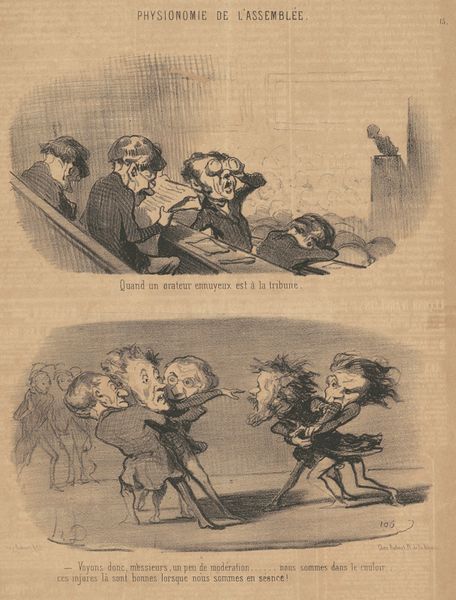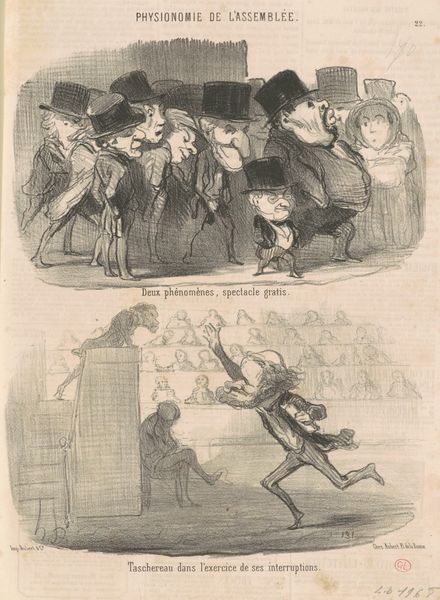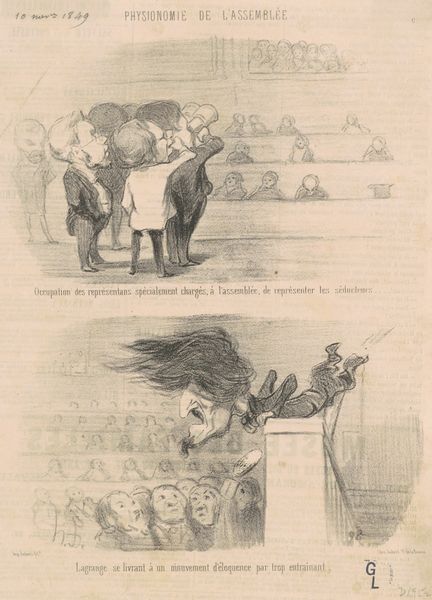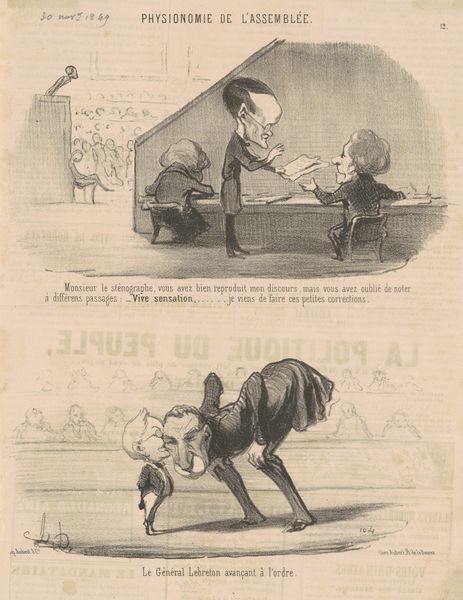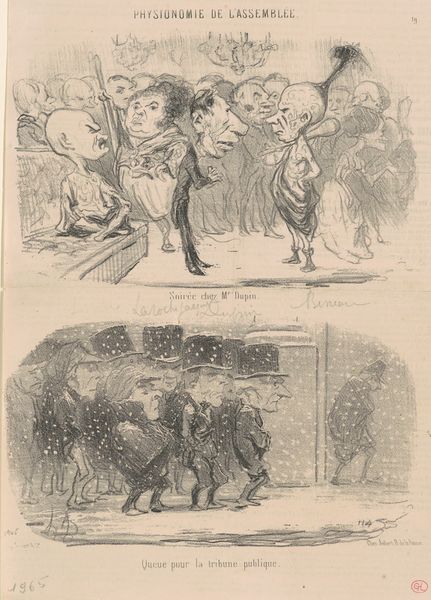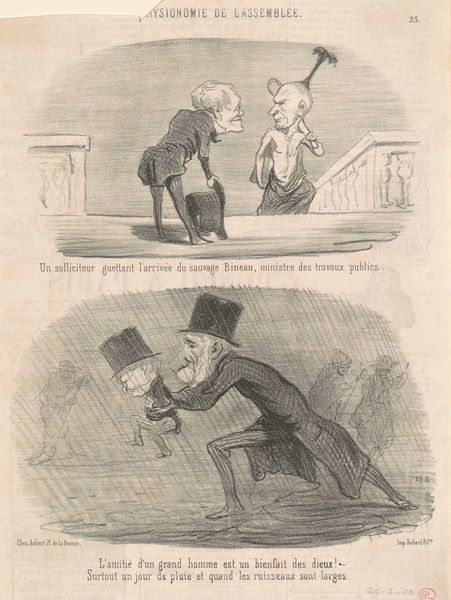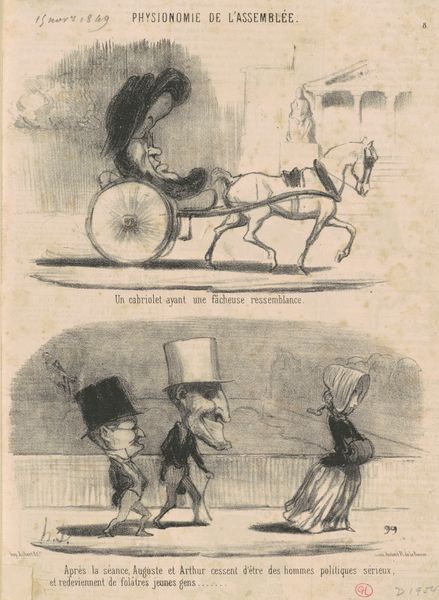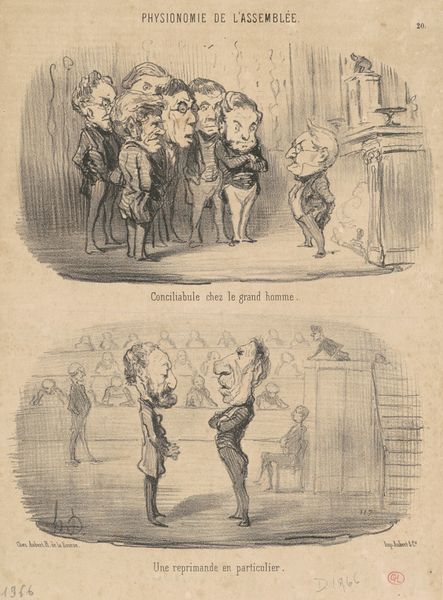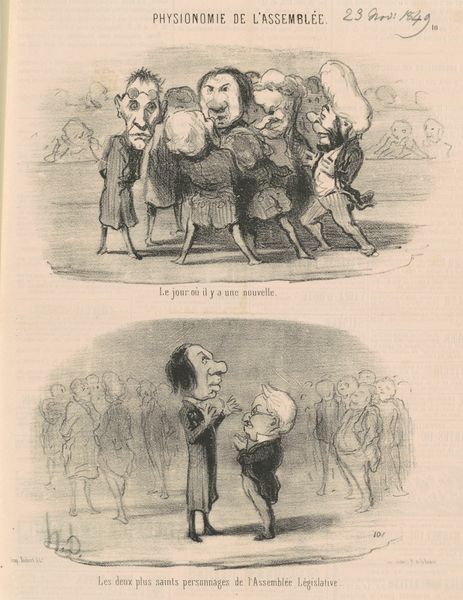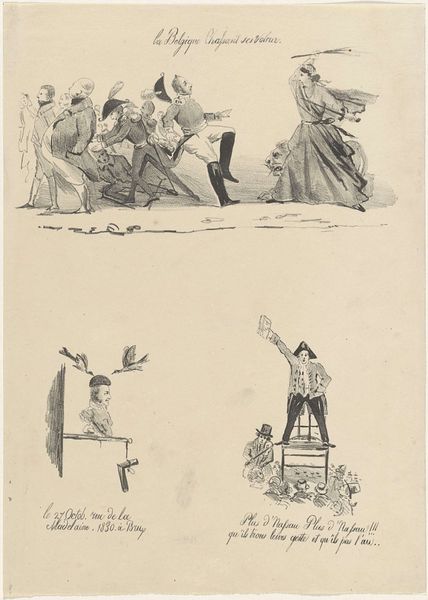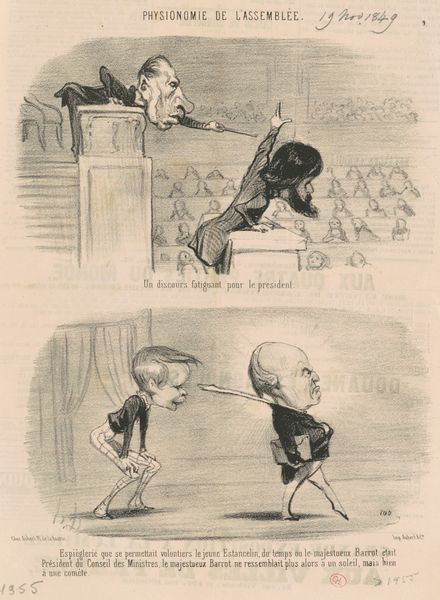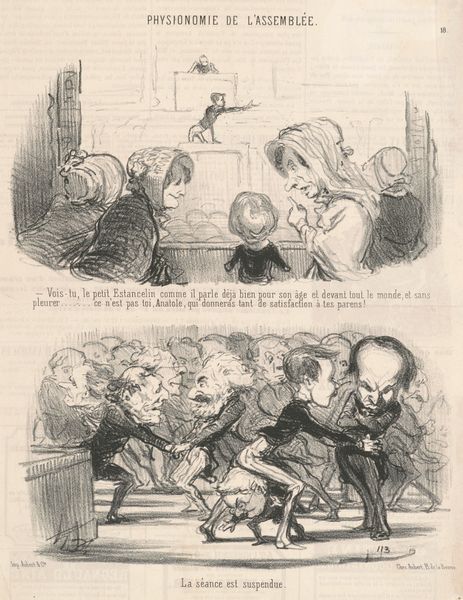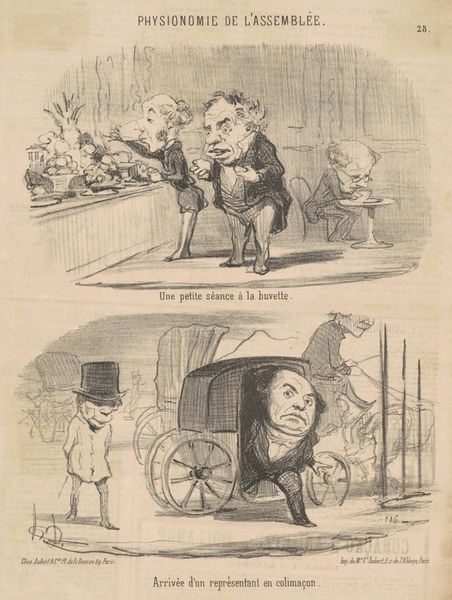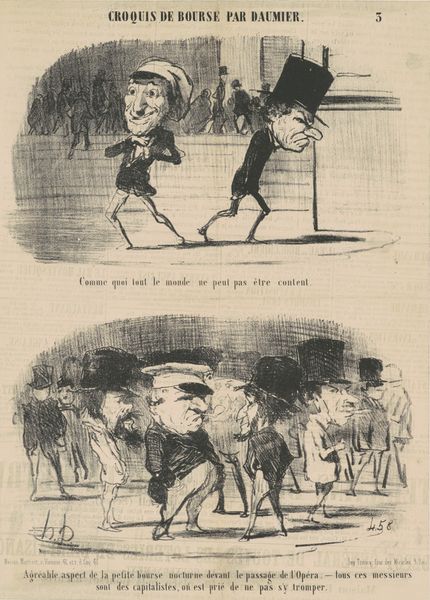
Le jour ou ... Théobald a appris son dégommage c. 19th century
0:00
0:00
lithograph, print
#
portrait
#
lithograph
# print
#
caricature
#
romanticism
#
history-painting
Copyright: National Gallery of Art: CC0 1.0
Curator: Daumier's lithograph, "Le jour ou ... Théobald a appris son dégommage," dating from the 19th century, is before us. The medium allows Daumier to mass-produce the image, disseminating its social commentary widely. Editor: Oh, goodness, it has this wonderfully gloomy energy! Everyone looks utterly deflated, especially that poor chap in the middle of the upper panel, draped in what seems to be utter despair. It's wonderfully melancholic! Curator: Precisely! Note the division of the lithograph into two distinct panels. The upper one, titled “The day poor Theobald learned he had been fired,” showcases the devastating aftermath of, presumably, a political dismissal. Observe how the rigid line work captures their unease and internal emotional struggle. Editor: The caricature style lends itself so well to political satire, and I adore the contrasting imagery in the lower panel! We shift from the static misery of Theobald's realization to the slightly ridiculous sight of men on horseback, under what seems to be pelting rain, each wearing an absurd helmet as they line up to what is labeled ASSEMBLÉE NATION, or “National Assembly.” Curator: That is insightful, for it's within these ironic visual juxtapositions, where men who exercise “the right to cause factions” under pouring rain, as reads the subtitle, we realize that he captures the essence of political theater, almost like a tragedy unfolding on a ridiculously comedic stage. The use of contrast with light and shadow further underscores this dramatic element. Editor: I love how this lithograph still speaks volumes about the nature of politics and power, doesn’t it? Daumier knew what strings to pull, what faces to exaggerate, to deliver such an emotional punch! I will now look differently at politicians lining up with fancy costumes for some official event, I wonder how many of them secretly received a ‘Theobald news' beforehand! Curator: Indeed, Daumier, through form and content, provokes us to reflect upon political hypocrisy, power dynamics and human foibles. This, I believe, endures to this very day.
Comments
No comments
Be the first to comment and join the conversation on the ultimate creative platform.
